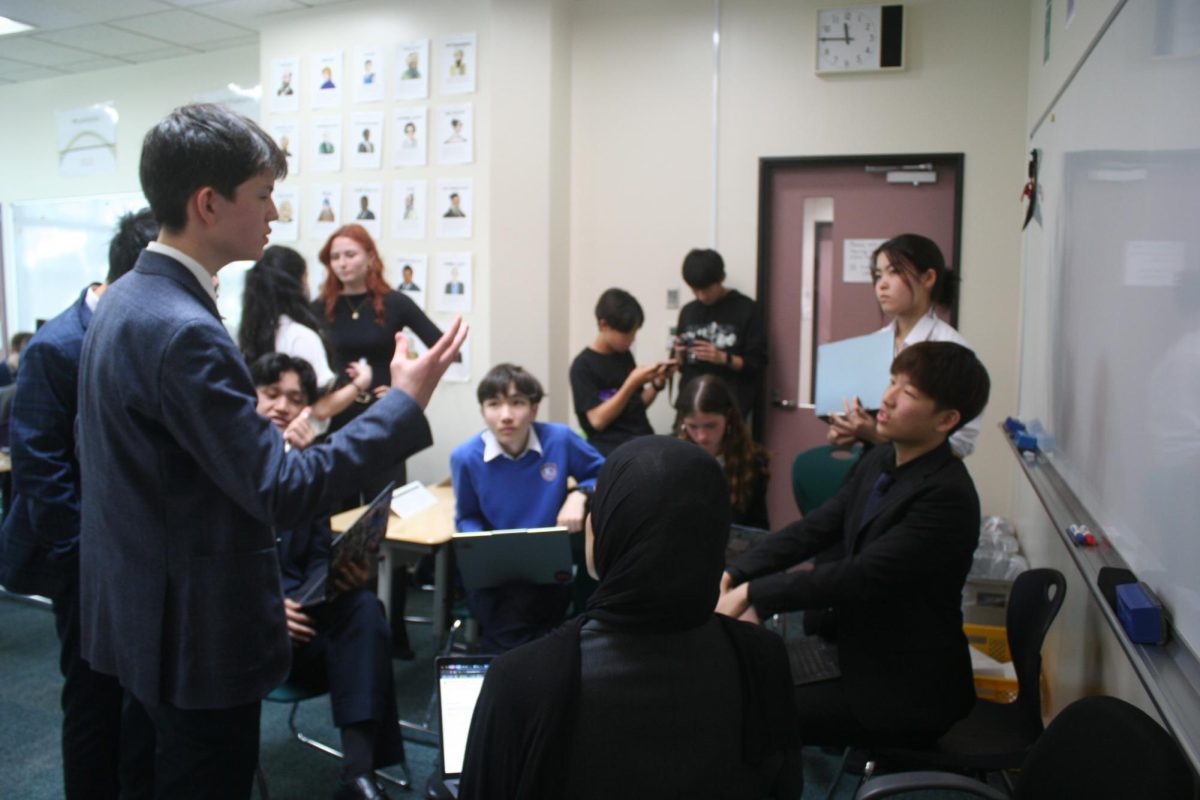The dissolution of the Soviet Union on December 8th, 1991, may mark the end of all Communist ideals and Russian influence as Western nations encroach onto former Soviet territory. As Russia exerts what little strength it has left in an attempt to restore its lost glory, former Soviet states progress forward with possible new global superpowers—such as Kazakhstan—emerging and entering the current international stage. However, with countries scrambling to fill the power vacuum left by the end of the Cold War, circumstances began to resemble an early stage of another global war; whether hot or cold is unsure.
The newly established Eastern European nations are dealing with mass unemployment and hyperinflation. They also face an unresolved question: how to rebuild the labor markets of newly independent states struggling in unchartered territories as they adopt capitalist market-based economies. From Estonia to Japan, delegates convened on April 4th to address this question.
A primary concern of the nations was determining whether other countries were aiding the newly independent states out of sympathetic support or imperial initiative. The delegate of the United States proposed a public directive that aimed to support former Eastern bloc countries, modeling it after the Marshall Plan in post-World War II reconstruction. A provision allowing the United States to take regional control of territories in the new countries in “times of war” faced scrutiny from skeptical nations, questioning whether the United States was reverting back to its early 19th century expansionist empire.
The delegate of Moldova questioned the United States, “Would not this directive serve as another excuse for the dominance of subordinate nations?”
Though delegates passed the proposal in a vote of 15-4, the condition was erased in an amendment passed by the Czech Republic and 13 other countries. Despite the removal, the United States has managed to grow influence in former Communist states by sponsoring pro-Western media outlets throughout Eastern Europe and also striking a deal with Kazakhstan for 40% of all Kazakhstan’s oil. The United States remains a global superpower and is unlikely to scale back its influence.
As the US extends its hand over weakened states, Eastern European countries are cooperating to help each other recover from the suffocating shackles of the Soviet Union, forming economic alliances such as the Eastern European Financial Organization and agreements like the Baltic masked by political self-interest. Despite signing peacekeeping agreements, the UK and Poland are continuously implicated in espionage, and Moldova, aided by Finland, massacres French soldiers in the previously jointly occupied territory of Transnistria. In response, other countries, like Lithuania, have begun rapid mobilization “purely for defense.” In Europe, after a century of experiencing the repercussions of divisiveness, doubt clouds political diplomacy.
Russia, no longer the dominant force it once was, is also attempting to revitalize its national economy as the first step in restoration.
When asked to detail the nation’s stance in the convention, the delegate of Russia asserted, “all other countries want to screw over Russia. Russia just wants to prevent this from happening.”
Civil unrest and economic instability indicate uncertainty for the future of Russia as a world power. The weakened country strives to revitalize Russia by spending the scarce capital it holds. Russia has agreed to pay the tuition of its untrained workers in exchange for these laborers receiving education in the Czech Republic and Finland, but how Russia will fund such an endeavor is unknown. Russia has also exchanged its valuable nuclear technologies with multiple countries, expanding nuclear possession in Europe. For example, Ukraine already served as a storage compartment for nuclear weaponry during the reign of the Soviet Union, but Russia has offered unspecified nuclear technology in exchange for 50% of the profits from Ukraine’s fishing industry. At least economically, it’s evident that the United States came out of the Cold War victorious.
Along with the United States, Kazakhstan is quickly increasing its influence. Though the US has a 40% share of Kazakhstan’s oil, Kazakhstan has assumed control of all United States companies operating within Europe, gaining immense material wealth.
We are observing the beginning of a new balance of power. This power structure, however, is fluid and can shift at any moment as nations rapidly mobilize and seek new alliances and treaties. Social tensions are also rising within countries, exemplified by the Czech government instituting anti-Slovak propaganda. As such, the current circumstances are starting to mirror past conditions in Europe. When decades-long norms are in disarray, and the fate of nations is at stake, war seems imminent. The Crisis Committee will resume order on April 5th.














